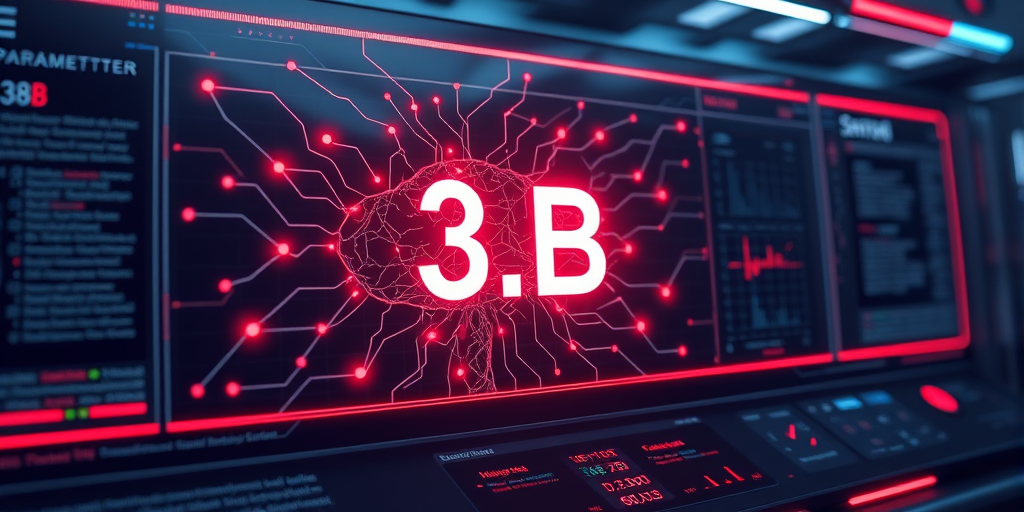
Phi3.5: Optimizing AI Efficiency with 3.8 Billion Parameters and Extended Context Handling

Microsoft has introduced Phi3.5, a lightweight AI model designed to deliver high performance with 3.8 billion parameters, outperforming larger models in its category. The Phi-3.5-mini variant, based on the Phi-3 base model, exemplifies this efficiency, offering a compact yet powerful solution for diverse applications. This advancement highlights Microsoft’s commitment to optimizing AI capabilities while maintaining scalability and quality. For more details, visit the official announcement here.
Phi3.5: Pioneering Lightweight AI with Breakthrough Innovations
Microsoft’s Phi3.5 introduces groundbreaking advancements in lightweight AI, delivering 3.8 billion parameters that outperform larger models while maintaining efficiency. Built on synthetic data and filtered publicly available websites with high-quality reasoning dense data, the model achieves superior accuracy and versatility. A rigorous enhancement process—combining supervised fine-tuning (SFT), proximal policy optimization (PPO), and direct preference optimization (DPO)—ensures exceptional performance and alignment with user needs. Additionally, 128K token context length enables seamless handling of long-context tasks, setting a new standard for scalability and adaptability.
- Lightweight AI model with 3.8 billion parameters outperforming larger models
- Synthetic data and filtered publicly available websites with high-quality reasoning dense data
- Rigorous enhancement process using supervised fine-tuning (SFT), proximal policy optimization (PPO), and direct preference optimization (DPO)
- 128K token context length for advanced long-context tasks
Phi3.5: Possible Applications in Long-Context Tasks
Microsoft’s Phi3.5 may be particularly suitable for applications requiring efficient handling of extended text, such as long document summarization, long document QA, and long document information retrieval. Its 3.8 billion parameters and 128K token context length could potentially enable robust performance in tasks involving extensive textual data, while its lightweight design might make it more accessible for deployment in resource-constrained environments. These capabilities might offer advantages in scenarios where traditional models struggle with context depth or computational efficiency. However, each application must be thoroughly evaluated and tested before use.
- Long document summarization
- Long document QA
- Long document information retrieval
Limitations of Large Language Models
While large language models (LLMs) have achieved remarkable advancements, they still face common limitations that can impact their reliability and applicability. These include challenges related to data quality and bias, as models trained on vast datasets may inherit or amplify existing biases or inaccuracies. Additionally, computational resource demands can restrict deployment in low-resource environments, and ethical concerns around privacy, security, and misuse remain critical issues. LLMs may also struggle with tasks requiring real-time data or external knowledge beyond their training cutoff, and their outputs can sometimes be hallucinated or inconsistent. These limitations highlight the importance of careful evaluation and ongoing research to address gaps in performance, fairness, and safety.
Conclusion: Phi3.5's Impact on Open-Source AI
Microsoft’s Phi3.5 represents a significant step forward in open-source large language models, combining lightweight design with superior performance through its 3.8 billion parameters and 128K token context length. Built on synthetic data and filtered high-quality reasoning dense data, the model leverages advanced techniques like supervised fine-tuning (SFT), proximal policy optimization (PPO), and direct preference optimization (DPO) to deliver robust, scalable capabilities. While its efficiency and versatility make it a promising tool for tasks like long-document processing, further evaluation is essential to ensure its suitability for specific use cases. As open-source AI continues to evolve, Phi3.5 underscores the potential of optimized, accessible models to drive innovation across industries.
Comments
No comments yet. Be the first to comment!
Leave a Comment